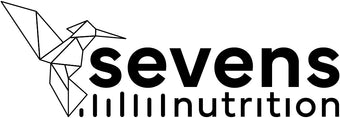Cholesterol: a necessary molecule that becomes a risk when it becomes unbalanced.
Cholesterol is an essential fatty substance for the body: it forms part of cell membranes, is a precursor to steroid hormones, and participates in the synthesis of vitamin D. However, when its levels rise above what is necessary—especially LDL cholesterol—it becomes a key factor in the development of atherosclerosis and cardiovascular disease.
How cholesterol is produced in the body.
The liver synthesizes cholesterol from acetyl-CoA through a chain of biochemical reactions whose rate-limiting step is the action of the enzyme HMG-CoA reductase. This enzyme acts as a master switch: when it's active, more cholesterol is produced; when it's inhibited, synthesis is reduced.
This is where monacolin K comes in: a competitive inhibitor of HMG-CoA reductase, meaning it partially blocks its function, thereby decreasing the total amount of cholesterol the liver produces.
Scientific evidence supporting its use.
Although monacolin K and lovastatin share a common chemical structure and mechanism of action, the doses used in dietary supplements are significantly lower. Studies such as that by Li et al. (2016) have shown that 3 mg daily can significantly reduce LDL cholesterol in people with mild dyslipidemia.
A meta-analysis published by Cicero et al. (2023), covering 13 clinical trials with doses ranging from 2 to 11.4 mg, shows that even amounts as low as 2–3.75 mg can have a clinically relevant effect, without causing serious adverse effects. This suggests that monacolin K, in well-formulated contexts, may be an effective and safe strategy for cholesterol reduction.
Legal and safety considerations.
EFSA authorizes the claim "helps maintain normal blood cholesterol levels" only at doses of 10 mg/day or more. However, as of 2022, both EFSA and EMA have issued warnings about the safety of monacolins at high doses, and recommend caution, especially in vulnerable populations. In this regard, the 2.9 mg dose used in products such as Sevens Red Yeast Rice represents a balance between efficacy and safety, aligning with the most recent findings.
Who is this type of intervention useful for?
-
People with moderately high cholesterol who do not wish to start drug treatment.
-
Those looking for a natural alternative with scientific backing.
-
Patients who have experienced side effects with statins and need a better-tolerated option.
Practical recommendations.
Monacolin K is best absorbed when taken with foods containing healthy fats. Therefore, it is recommended to take the supplement with dinner, as part of a balanced diet. To observe clinically relevant results, consistent use for at least 8 weeks is suggested.
Conclusion
Monacolin K represents an interesting therapeutic option for those seeking to improve their lipid profile naturally. Its specific action on hepatic cholesterol synthesis makes it an effective tool, provided it is used in safe doses and with professional monitoring. Products like Sevens Red Yeast Rice apply these principles when formulating supplements that combine science, tradition, and safety.



